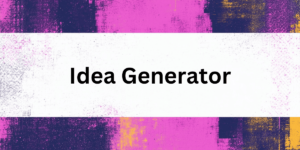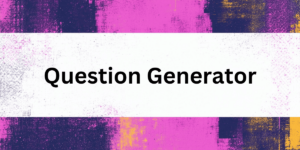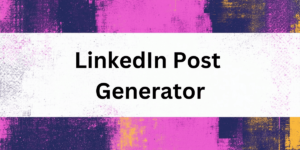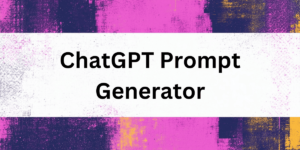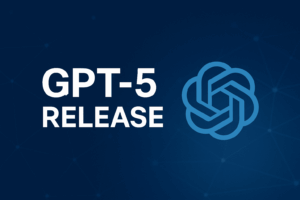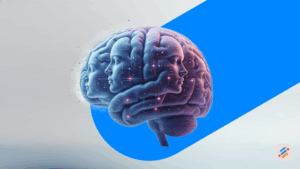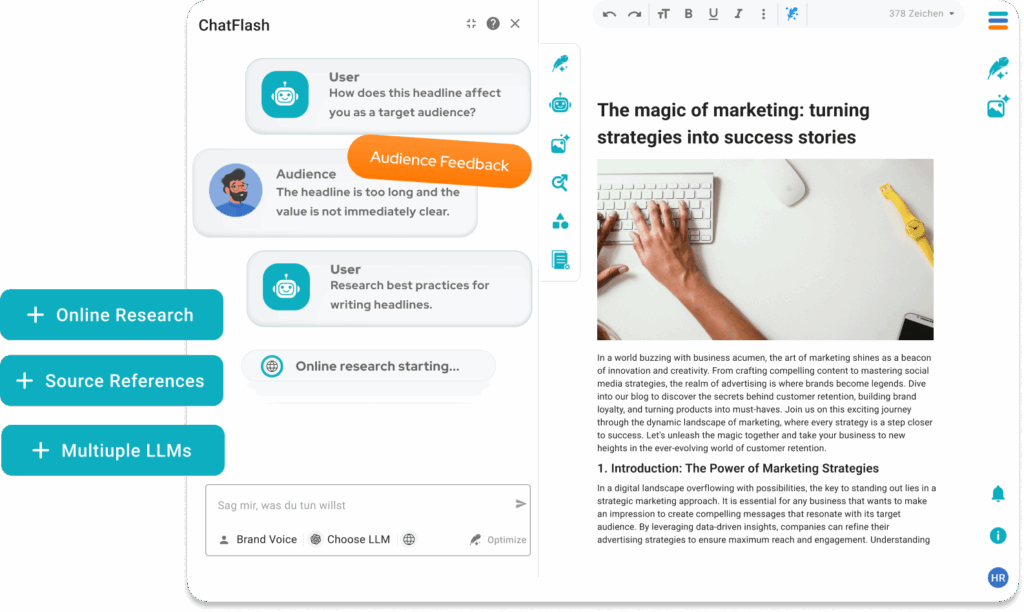OpenAI’s chatbot ChatGPT can be used to generate many different texts using artificial intelligence. For example, the AI chatbot can write code, compose poetry, or even write stories. But what about the ChatGPT copyright with this diversity? We explain it to you!
ChatGPT Copyright: AI and copyright compared to other areas of law.

To understand the ChatGPT copyright issue, one must first analyze the situation between AI and copyright in general. Copyright law protects the intellectual works of authors, artists and other creators from unauthorized use and exploitation. It also includes the rights to the publication, distribution and marketing of works. An important aspect of copyright law is the introduction of licenses that allow creators to earn monetarily from their work while allowing their works to be used.
However, the link between AI and copyright is a complex issue. On the one hand, AI can help facilitate content discovery and use by helping creators protect their rights. On the other hand, AI can also lead to copyright infringement when content is copied, modified, or altered without notifying the creator. Therefore, it is important that both AI developers and copyright holders know how to deal with AI and copyright in an ethical and legally responsible manner.
There are several legal issues that need to be considered when using AI and copyright, including whether AI systems can be recognized as creators and whether they can be held liable for copyright infringement. There are also some ethical issues to consider in the development of AI systems, including whether AI systems protect the rights of creators and whether they can be used in a way that is fair to creators.
ChatGPT Copyright: These problems arise
Since, according to Section 2(2) of the German Copyright Act, copyright is about works that are personal, intellectual creations of human beings, some problems arise from the use of artificial intelligence:
- Unwarranted copyright infringement: AI-generated works can easily be considered the property of another person, which can lead to unwarranted, legal action for those who originally created them.
- Confusion over copyright attribution: It is difficult to determine which person or organization has the right to publish and/or exhibit AI-generated content. This can lead to the emergence of litigation.
- Impairment of creative freedom: AI works could discourage people from expressing their own creativity and developing new ideas because existing materials can be easily duplicated.
- Lack of privacy standards: Since AI is based on personal or sensitive information, there is a risk that this data will be misused through AI Big Data and data mining without anyone noticing. This makes it more difficult to determine when and where such information was used.
ChatGPT Copyright: Can the results be used without hesitation?
But what does all this mean for ChatGPT copyright? Can the texts created by ChatGPT be used without hesitation, or can one be accused of plagiarism as a result?
The fact is that ChatGPT can create text content from different, newly thrown together text modules. As a result, the results are always original. However, OpenAI trains the AI system based on a wealth of different pre-existing texts. These come from multiple sources and through training, the AI learns how to communicate and respond to questions in natural language. ChatGPT is thus based only on its own knowledge resulting from the training it has undergone and is not able to obtain new information from the Internet or other sources.

Plagiarism only occurs when someone uses someone else’s intellectual property without consent or acknowledgement of the source. As an artificial intelligence, ChatGPT does not have any intellectual property itself, which means that you can use the texts without hesitation, but if the data on which ChatGPT is based was plagiarized, the answers generated by ChatGPT could still be considered plagiarized.
If you use ChatGPT, you should establish your own policies and procedures to prevent plagiarism, for example, by regularly reviewing ChatGPT-generated work for originality and by training your collaborators to properly cite sources.
Copyright free results for you with ChatFlash
As an alternative to ChatGPT for copyright-free results, neuroflash offers its very own AI chatbot, namely ChatFlash! ChatFlash is included in all neuroflash price plans and can also be used completely free of charge and without subscription. All results generated by ChatFlash are yours. You can easily find the AI chat in your neuroflash interface:

Start your chat by simply typing your request, question or instruction. The AI will respond to your input. The chat does not forget your last question/instruction, so you can refer to it. So you can keep chatting with the AI.
ChatFlash is based on the same technology as ChatGPT and is in no way inferior to the OpenAI chatbot. In addition, ChatFlash offers even more functions that are not included in ChatGPT.
Via personalities, it is possible to direct and influence the output of the magic pen in a targeted manner. Likewise, neuroflash already offers optimized prompts with templates, which are adapted to various applications and can be used freely.



A personality defines the following:
- Tone of the conversation
- Role (function)
- Personality, brand
- Context of the expected answer
You can choose from different personalities. For example, ChatFlash can answer as an SEO consultant, social media influencer, journalist or writing coach. Additionally, we offer you the possibility to add your own personalities. For example, you can customize ChatFlash to match your company identity or personal writing style. We will show you how to do it:
Finally, neuroflash offers you a variety of other functions with which you can edit texts even further. Various workflows and additional functions such as an SEO analysis and an AI image generator also offer great added value for anyone who needs texts for professional purposes.

ChatGPT Copyright: Can one's own results be protected by copyright?
There are some legal issues that need to be addressed when implementing AI-based works. Since AI-based works are not created by humans, the question arises as to who is the author and whether the author of the work is also the copyright owner. Since the AI-based work is itself a new work, the creator of the AI-based work must also be considered the copyright owner. This means that the user also automatically becomes the creator of the new AI work.
To ensure this, AI-based works must be protected under copyright laws. Although there are some legal challenges that need to be considered when implementing AI-based works, it is possible to overcome these challenges with proper protection. Considering the legal aspects of AI-based works, users can use AI-based works for their own purposes without infringing on copyrighted material.
What does this mean for the future of copyright?
Although the future of copyright remains uncertain, one thing is certain: artificial intelligence (AI) will play a major role in it. AI systems may be able to answer complex legal questions and can prevent copyright infringement or even comply with copyright laws.
It is therefore important that legal experts develop AI systems to ensure that copyright laws are complied with. AI can also help better protect copyrights by detecting and preventing copyright infringement.
In addition, AI systems can also help copyright and other legal issues be handled more efficiently and quickly, making the work of lawyers easier. It is therefore important that legal experts develop AI systems to help better comply with copyright laws and prevent copyright infringement.




